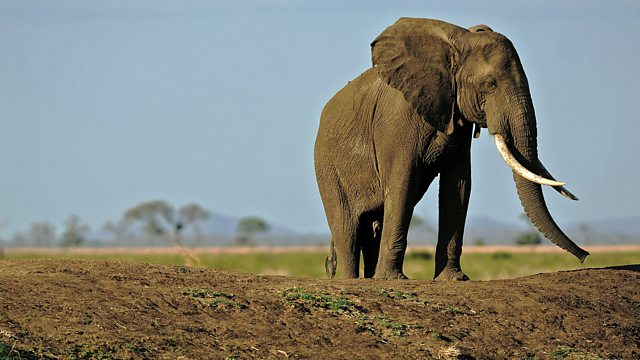
Elephant Anti-Poaching Patrol
Elephant Anti-Poaching Patrol; Mosul Dam Warning; Storks and Junk Food; Artificial Intelligence; CRISPR Gene Drives; Neanderthal Genome
What can be done to stop the decline in the number of African elephants and the slaughter of thousands of animals each year for their ivory? This week in London 40 companies such as shipping firms and airlines signed a declaration aimed at closing illegal wildlife trafficking routes. Southern Tanzania has lost more than 60% of its African elephants in the last 5 years. In Central Africa, the figures are worse. The ����ý’s Africa correspondent Alastair Leithead reports from the Garamba National Park in the Democratic Republic of Congo.
Mosul Dam Warning
The largest dam in Iraq, the Mosul Dam, is in danger of collapsing according to a number of reports. It has been plagued with problems from the start as the dam was built on layers of limestone and gypsum - not only are these soluble but cavities form between the layers. The dam therefore needs constant grouting – the filling in of these cavities with a mixture of cement, clay and silicon – to stop it from collapsing. When the Islamic State group took control of the dam they destroyed much of this grouting equipment and many staff did not return once local forces had regained control of the dam. Professor Nadhir Al-Ansari from the Lulea Technical University in Sweden explains to Jack Stewart what could happen if the dam collapses.
Storks and Junk Food
New research shows that white storks in Portugal appear to be addicted to junk food and have stopped migrating to Africa for the winter. Dr Aldina Franco from the University of East Anglia has found that since the 1980’s a population of white storks in Portugal has foregone migration as they can get all the food they need from open landfill sites in the south of the country. This means they can repair their nests and be ready to rear young much earlier than their migratory counterparts. The population has now exploded to about 14,000 birds. However new European Union regulations will soon mean the end of open landfill sites, as countries will have to recycle their food waste. How this might affect the storks is unknown and Dr Franco does not know if the new non-migratory generations will be able to make their way back to Africa if the need arises.
Artificial Intelligence
At the Cambridge Science Festival, Gareth brings together a panel of experts including Professor Barbara Sahakian and Astronomer Royal, Professor Martin Rees to discuss the limits of artificial intelligence, and its presence in space.
CRISPR Gene Drives
There is a new genetic technology which promises to revolutionise agriculture and transform our influence over the natural world. Research is well underway to create chickens immune to pandemic influenza and mosquitoes engineered to wipe out wild populations of the insects which transmit diseases to humans. These are just two examples of what we could create with CRISPR gene editing. Should we be worried about this unprecedented power over animals and plants? The potential for good is enormous. The ethical challenges are profound. Professor Matthew Cobb of the University of Manchester explores the brave new world of CRISPR gene editing.
Neanderthal Genome
What does the DNA of our closest ancestors tell us about ourselves? Professor Svante Pääbo is director of the Max Planck Institute for Evolutionary Anthropology and led the project to sequence the Neanderthal genome. He tells Robin Ince about the comparatively small number of changes in the genes between us and Neanderthals including changes in the brain. Could these differences explain what makes us human?
(Photo caption: An elephant © Daniel Hayduk/AFP/Getty Images)
The Science Hour was presented by Jack Stewart with comments from Melissa Hogenboom of ����ý Earth
Producer: Andrew Luck-Baker
Last on
More episodes
Previous
Broadcasts
- Sat 19 Mar 2016 09:06GMT����ý World Service Australasia
- Sat 19 Mar 2016 23:06GMT����ý World Service except News Internet
- Sun 20 Mar 2016 02:06GMT����ý World Service Australasia
- Sun 20 Mar 2016 11:06GMT����ý World Service except Australasia & News Internet
- Sun 20 Mar 2016 14:06GMT����ý World Service Australasia
- Mon 21 Mar 2016 06:06GMT����ý World Service South Asia
Podcast
-
![]()
Unexpected Elements
The news you know, the science you don't

